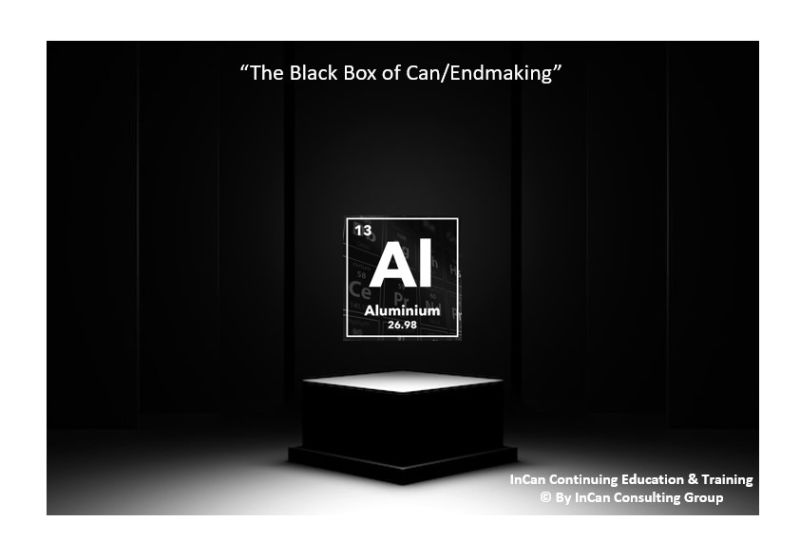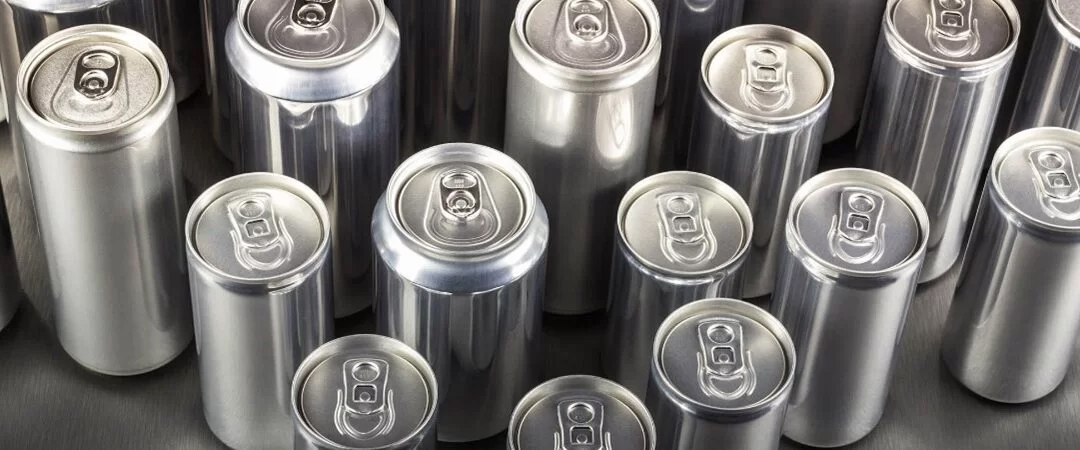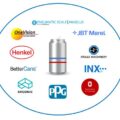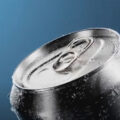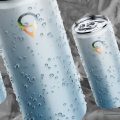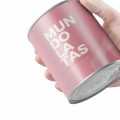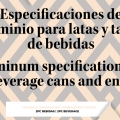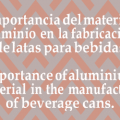The manufacture of two-piece aluminum cans for beverages requires several elements or raw materials for its elaboration, among them are the varnishes for the exterior and interior protection, the inks for the creation of unique and distinctive designs in each type of beverage, the lubricants for the good formation of the metal according to its state in the process, the aluminum alloy that constitutes the base of every container, among others.
Unfortunately, aluminum alloy, which comes in coil or coil form for all beverage can manufacturers, is an element that is little explored or understood in production lines. Aluminum coils that come in various thicknesses, widths or weights are usually perceived as black boxes in the process, as they are the element with the least information available to the user.
Aluminum alloy constitutes approximately more than 70% of the conversion cost of a beverage can, the rest of the conversion costs are varnishes, inks, electricity, wages, tooling, lubricants, washing chemicals, among other factors. Hence the great importance of understanding their properties, their good specification, behavior for a good use and processing in the lines.
The aluminum alloy commonly used for the manufacture of beverage cans is 3104-H19, where the main alloy is manganese, which allows its good formability in the body forming process. Alloy 3104-H19 is an alloy hardened by cold working or cold rolling, with an uncoated finish without varnish coating or surface treatment. Each aluminum ingot is manufactured under the same process conditions, this does not mean that there will not be performance variability in the production lines between ingots from the same supplier or discrepancy in can quality between production mills, hence the importance of a good material specification.
The aluminum coils are manufactured according to the specifications supplied by the can manufacturer, where its dimensions such as width and gauge, type and amount of post-lube on its surface, total weight of aluminum and secondary packaging, depend on the can design to be manufactured and Front End configuration. As for the mechanical properties, surface conditions of the sheet, chemical composition and microstructure of the material, these are suggested and normally controlled by the aluminum producer (rolling mill).
The preparation of a certificate of analysis (CoA) between the can manufacturer and the aluminum manufacturer is essential for good quality control of aluminum coils. This certificate must include concepts agreed in the material specification such as yield point (YS) or elongation percentage (ε), among others. These certificates must be sent by the aluminum manufacturer prior to the shipment of the coils to the can manufacturer’s plant for review and release.
The aluminum coil receipt inspection by the can manufacturer is a key process in the good use and management of the material, in this process it is necessary to verify what is reported in the certificate of analysis and the good physical condition of the aluminum material and secondary packaging. It is in this receipt inspection process that waste control begins, which is one of the main performance indicators (KPI) of every can producer.
Based on the above, it can be concluded that it is of utmost importance to understand the aluminum material that will be processed in the production lines. Aluminum being the main cost element in the conversion cost of a beverage can or closure, its good specification to suppliers, receipt inspection, processing and disposition to unexpected deviations can make the big difference between can and closure producers. There are several topics about aluminum that will lead to a good understanding, which we will be discussing in the next technical articles.
